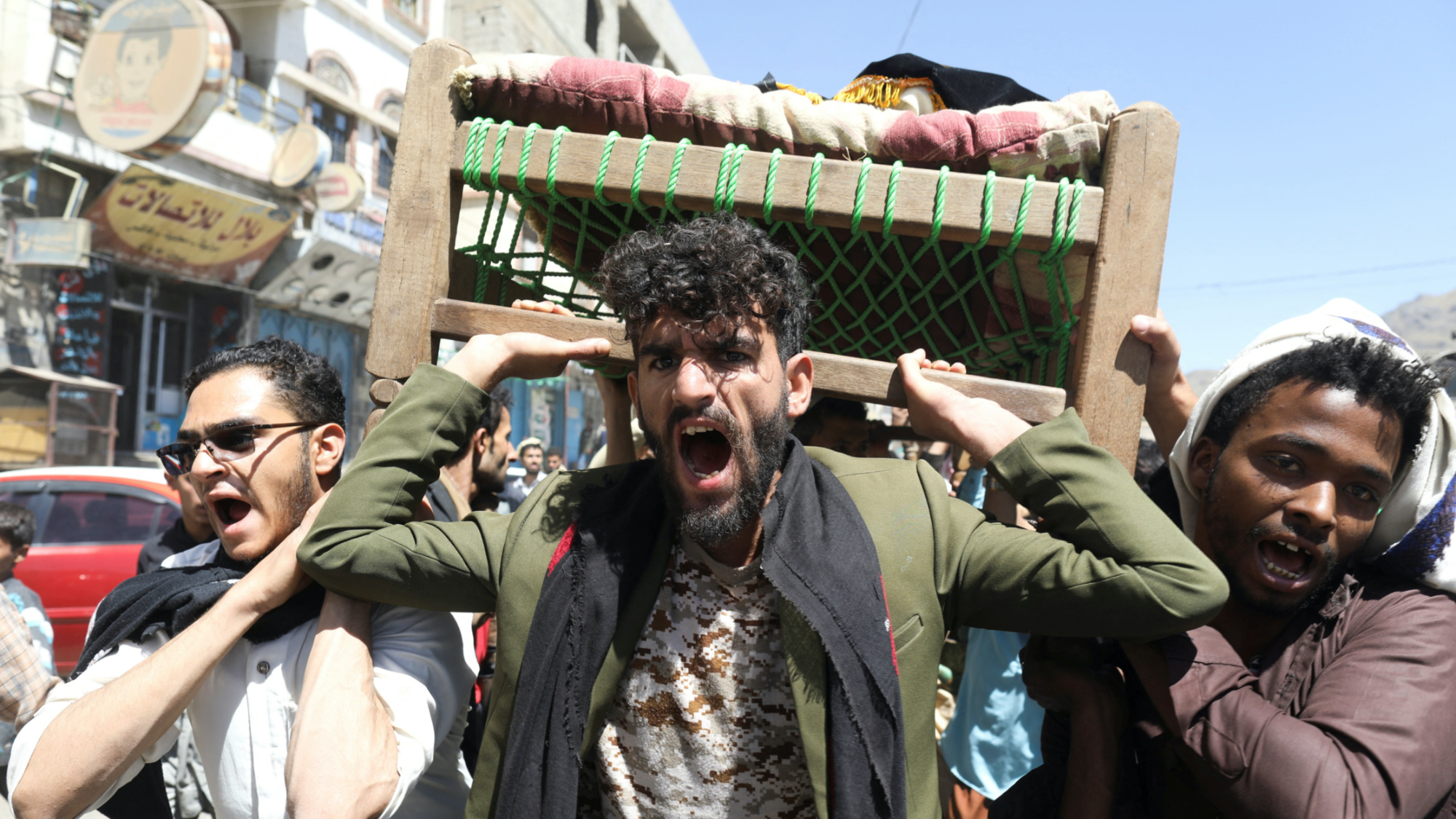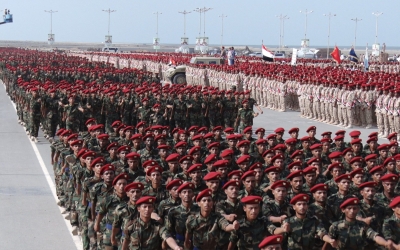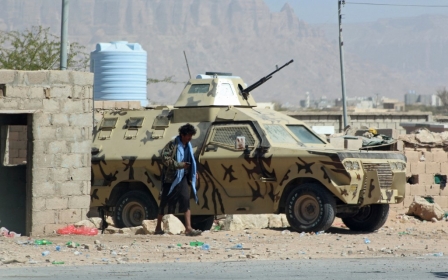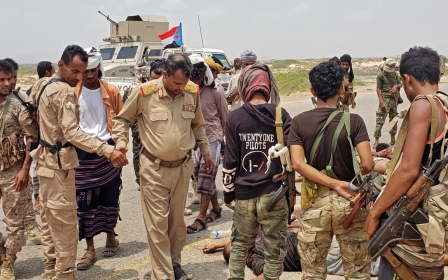Yemen: Tragedy of children killed by bad medicine sends chills through sick patients
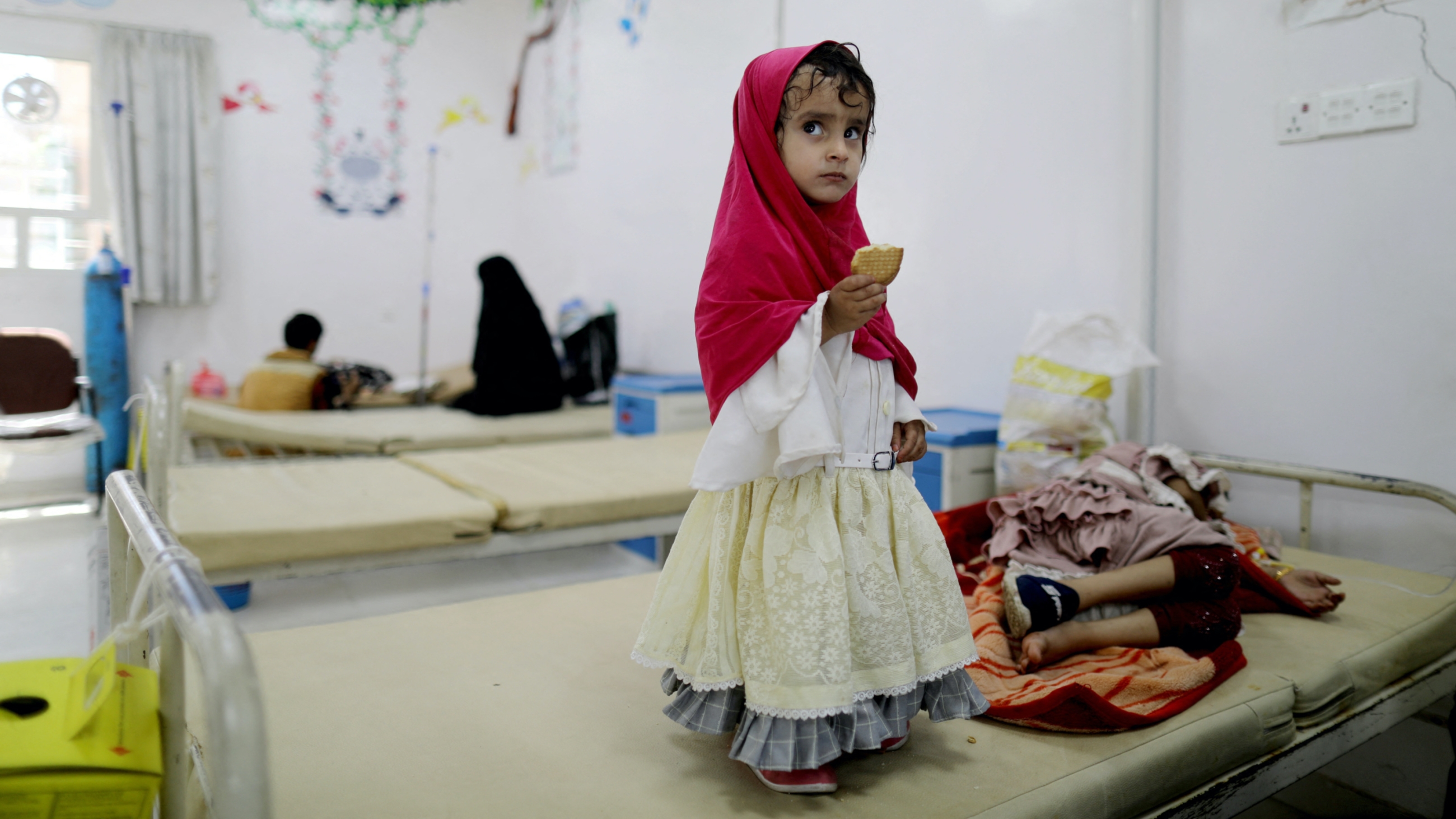
Two thoughts flooded Ashraf's mind when he heard that 10 children with leukemia had been killed by contaminated medicine. The first was that their death was a horrific tragedy, the latest in Yemen's cruel recent history.
The second was: "Could I be next?"
"I was terrified because they were being treated at a public hospital, and their medicine should have been tested before it was used," Ashraf, who suffers from liver cancer, told Middle East Eye.
Through years of nationwide medicine shortages, Yemenis have been able to find life-saving smuggled medications by seeking out the pharmacies and hospitals that stocked them, or even the smugglers themselves.
But when news broke last week that the children had died from contaminated smuggled chemotherapy medicine administered at a hospital in the capital, Sanaa, terror spread among patients relying on smuggled medication for treatment.
New MEE newsletter: Jerusalem Dispatch
Sign up to get the latest insights and analysis on Israel-Palestine, alongside Turkey Unpacked and other MEE newsletters
"The complications suffered by the sick children was a result of a drug smuggled from outside the country that reached a pharmacy in the capital, which was then purchased by the patients' families," Mohammed al-Ghaili, the head of the Supreme Authority for Medicines and Medical Supplies, said on 17 October.
Yemenis now feel that taking the only medicine available to them is a gamble.
Ashraf said that the drug he needs cannot be found legitimately, and his only solution has been to buy smuggled medication.
"I know that the smuggled medicine may not have good results and may worsen my health, but I can't afford to travel abroad, and the original medicine isn't available on the local market," said Ashraf, who has never heard about cancer patients dying because of trafficked medicine until now.
"Sometimes I can't even find the smuggled one, and I need to wait for days or weeks until it arrives from abroad."
Ashraf, like many others, sometimes asks travellers from Egypt to Yemen to bring him medicine, but he rarely finds someone willing.
"Smugglers usually bring the medicine with travellers to Yemen, but it isn't the safest way of transporting medication," he said.
Smugglers step in
Yemen's health sector has been devastated by the ongoing war between the rebel Houthis and the government backed by a Saudi-led military coalition, with more than half of the country's medical facilities paralysed.
'Confiscating them is not a solution because patients will purchase what they need, even from the smugglers' own homes'
- Hani, Sanaa pharmacist
Medicines that have disappeared from the market have unpopular alternatives that both patients and doctors avoid, leaving it to smugglers to fulfil demand.
The use of smuggled medicines has become increasingly common around the country amid inaction by health ministries in both Sanaa and Aden, the provisional seat of the government.
Mohammed, a pharmacist in Sanaa, said that some pharmaceuticals are no longer available because either their agents can't import them or the importing companies have closed down altogether due to restrictions on movement to Yemen.
There are only a few flights operating to Aden, and the airport in Houthi-held Sanaa had been closed for six years before being partially reopened to limited commercial flights from Amman in April as part of a truce agreement that expired in early October.
Meanwhile, a number of pharmaceutical companies refuse to send their products to Yemen because they cannot guarantee that they would be properly handled at the right temperature and under the right conditions.
Mohammed, whose pharmacy stopped buying smuggled medicine from traders following the incident, said he had not been aware of their danger until he heard the news about the children's deaths.
No trust in local medicine
He said that, while there are several pharmaceutical factories in Yemen, people do not trust locally manufactured medicines - which was the case even before the war - and prefer imported products.
"It's not only patients but even some doctors don't trust Yemeni medicine, and this means they will go for smuggled ones, which may have been brought in in conditions that are not ideal for their viability," Mohammed said.
The pharmacist noted that medicines have long been smuggled into Yemen, and people would buy them because they were cheap.
"This isn't new, but the new development is patients resorting to buying smuggled and expensive medicine because the original ones are not available on the market any more," he said.
The children's deaths have sparked anger on social media against the health ministry in Sanaa and the different public medical institutions.
The Houthis blame the Saudi-led blockade on Yemen for the widespread use of smuggled medicine, while they are often accused of blocking or holding up deliveries of humanitarian aid.
Anees al-Asbahi, doctor and spokesperson of the health ministry in Sanaa, said that the 38 companies that used to import medicine have left Yemen due to restrictions imposed by the coalition.
He said the Supreme Authority for Medicines and Medical Supplies, the health ministry, and health offices have launched a campaign to confiscate smuggled and expired medicines.
Hani, another pharmacist in the capital, said that following the crackdown, smuggled medicines have disappeared from many pharmacies. But patients, including those who have become nervous about buying smuggled medications, are still looking for them because of a lack of alternatives.
"I can see there is a terror felt among patients these days, and they are right," he said.
"Smuggled medicine can be deadly, but confiscating them is not a solution because patients will purchase what they need, even from the smugglers' own homes."
Hani noted that locally produced medicines are alternatives for only some kinds of treatments, but not all.
"The solution is to facilitate the import of medicines through medical companies. Patients cannot survive without them."
*Names were changed for security concerns.
Middle East Eye delivers independent and unrivalled coverage and analysis of the Middle East, North Africa and beyond. To learn more about republishing this content and the associated fees, please fill out this form. More about MEE can be found here.


